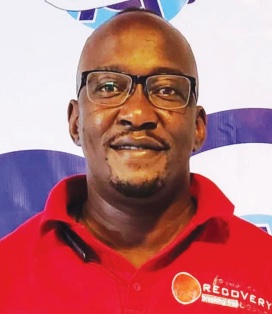
Screenshot
 At a 2022 networking workshop I attended, a current female member of parliament shared a disturbing experience from her 2020 election campaign.
At a 2022 networking workshop I attended, a current female member of parliament shared a disturbing experience from her 2020 election campaign.
She recalled how men fondled her backside during crowded rallies.
“There were times I would be greeting people, and out of nowhere, I would feel someone touching my buttocks. It was disgusting,” the legislator said.
Beyond inappropriate touching, she also faced doubts about her leadership capability because she was unmarried. Some male constituents even proposed marriage due to her single status. The legislator’s experience has similarities to that of a former female aspiring candidate, Yvonne Mpambara, who revealed in a recent televised interview the trials encountered while collecting required signatures for presidential nominations.
Mpambara said disrespectful men concentrated more on her physical appearance than on the ideas she was presenting. Both experiences offer a glimpse into the hurdles aspiring female politicians face during elections.
From men demanding sex in exchange for favours, and many other forms of sexual harassment, unsupportive spouses, demeaning remarks, and doubts about their ability to lead, women endure significant challenges.
A July 2023 policy brief from the Economic Policy Research Centre (EPRC), titled, “Addressing Violence Against Women During Elections in Uganda,” states, “While both men and women may be victims of electoral violence, the forms of violence women face are distinctively different, particularly those that are overlooked or hidden, such as sexual assault, intimidation and threats.”
The policy brief highlights the mounting concerns women face during campaigns and elections. This cycle is likely to persist in the coming three months before the January 2026 elections, with more aspiring female politicians reporting harassment and sexual abuse.
While some women have reported incidents to authorities, others remain silent due to fear, shame, or risk of reprimand. Such experiences can have lasting negative impacts, sometimes causing women to abandon political careers. I know former female politicians who left politics entirely due to these encounters.
But must this be the case? Should women abandon their ambitions because of growing electoral violence? Absolutely not. Like men, women deserve fair and just treatment during electoral processes. During this campaign season, here are five strategies for women to protect themselves from predatory behaviour:
1. Uphold principles and standards. If someone demands sex in exchange for votes, reject them outright. This preserves your dignity and respect in the long term.
2. Build a strong support system. Campaign with trusted family members, your spouse, or team members. Introduce them at rallies to signal you are not alone, psychologically deterring those who might cross boundaries.
3. Limit crowd interactions. Excessive mingling can invite harassment. Maintain a safe distance when possible.
4. Report harassment and abuse. If concerned about backlash, consult a trusted team member for guidance on addressing incidents discreetly.
5. Seek professional support. If overwhelmed, consult a trusted counsellor to navigate campaign challenges. This issue is not unique to Uganda. Across Africa, female politicians face similar gender-based violence.
In Kenya’s 2022 elections, female candidates reported sexual harassment and intimidation, while in Nigeria, women faced smear campaigns questioning their morality. To address this, governments must implement robust policies, such as stricter penalties for electoral violence and mandatory gender sensitivity training for electoral officials.
Additionally, civil society can amplify women’s voices through mentorship programs and public campaigns to challenge patriarchal norms, fostering a culture of respect for female leaders.
Empowering women through leadership and self-defense training can build resilience, while male allies in politics publicly condemning such behaviour can help shift societal attitudes.
This is not a new problem. I urge the government to enact and enforce policies and laws that protect women from electoral violence, ensuring a safer, and more equitable political landscape.
The writer is a clinical psychologist, addiction professional, and executive director of Focus on Recovery (FORE) Uganda.


